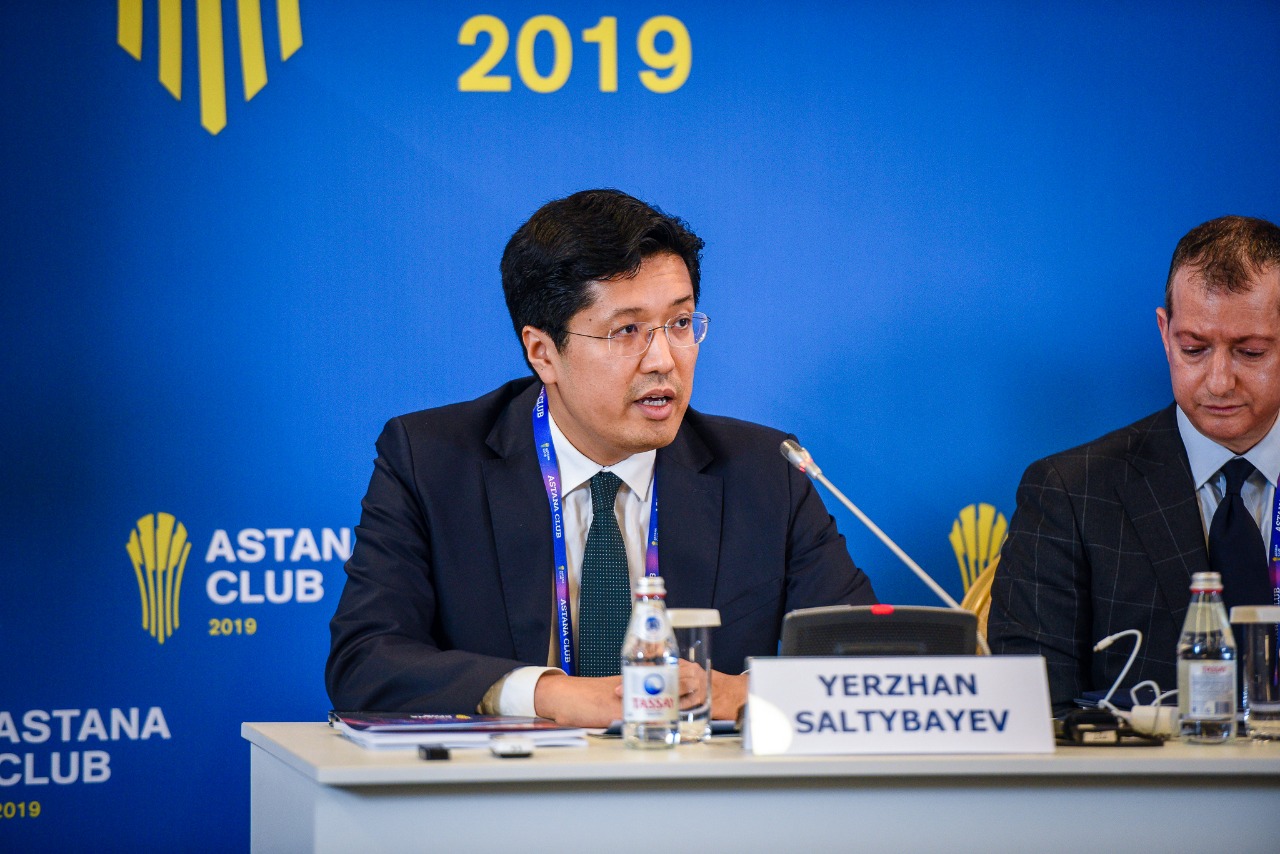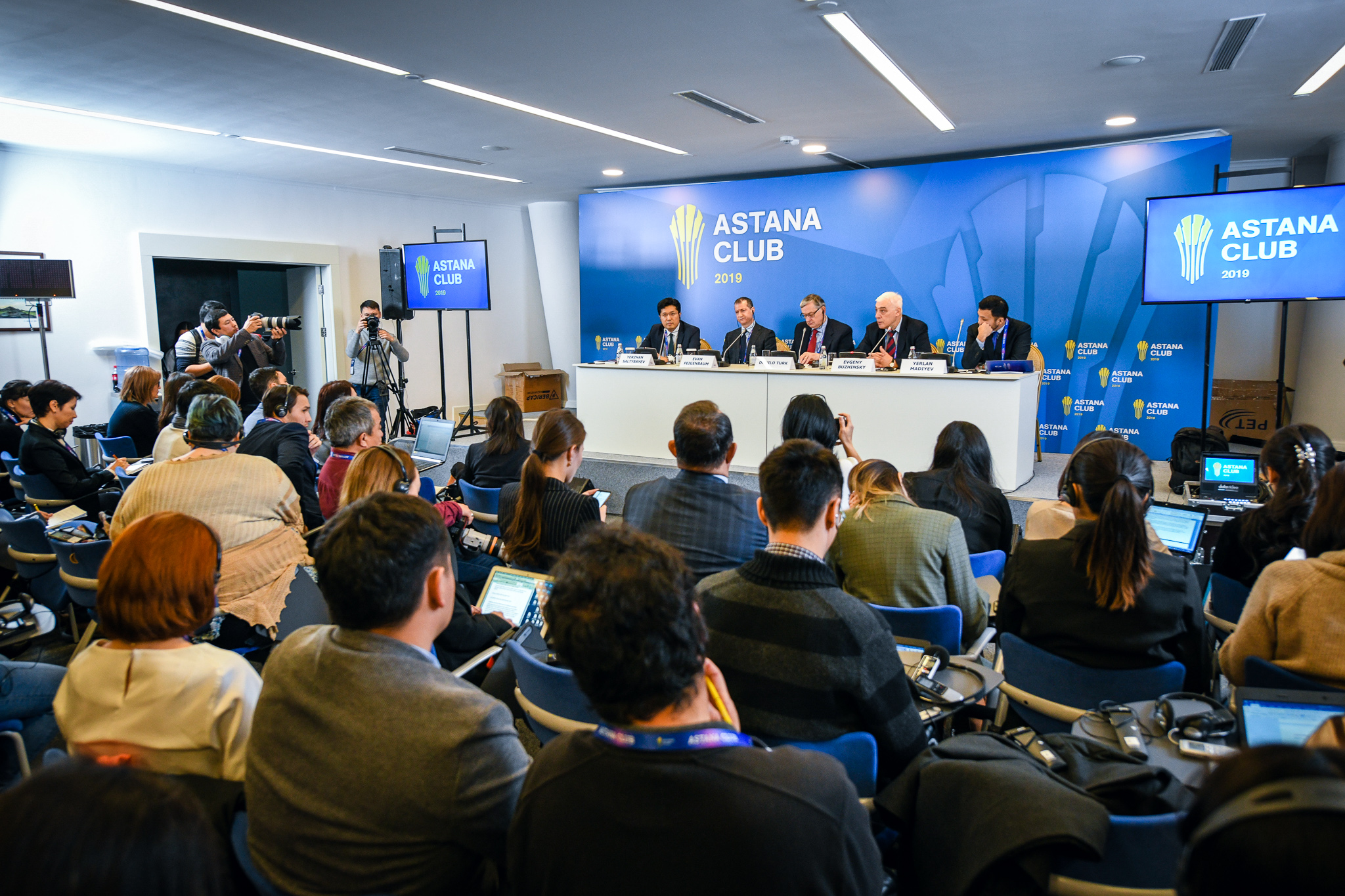Within the framework of the fifth session of the Astana Club political forum, the second edition of the “Top 10 Risks for Eurasia in 2020” rating was presented in the capital of Kazakhstan. Forty authoritative experts and politicians, whose opinion is taken into account by state leaders, international institutions and major media outlets, took part in the study. In addition, more than 1,100 professional respondents from 70 countries responded to the questionnaire.
The project leader, director of the Institute of World Economy and Politics under the Foundation of the First President of Kazakhstan Yerzhan Saltybaev and co-authors of the rating, former Slovenian President (2007-2012) Danilo Turk, Vice President for Studies at the Carnegie Endowment for International Peace Evan Feigenbaum (the U.S.), and the chairman of the PIR Center, Lieutenant General Evgeny Buzhinsky (Russia) reported on the outcome of the large-scale work.
The key goal of creating an annual rating is to assess and forecast the most essential dangers for Eurasia.
Yerzhan Saltybaev drew attention to the fact that, based on the results of the work, the main risks are trade wars, a nuclear missile race, as well as a struggle for technological dominance.
“Every year, as part of the work on the rating, we try to increase its research and applied potential. This year approximately 40 global experts, including the heads of international think tanks, leading politicians and diplomats, participated in developing the risk list. We also expanded the number of respondents from 1,000 from 60 nations last year to more than 1,100 from 70 nations. That is, the representative sample is quite broad," Yerzhan Saltybaev said.

The key risks for Eurasia in 2020 are:
1. Aftershocks of the 2020 U.S. presidential election
Current President of the United States Donald Trump has already launched his re-election campaign. However, his opponents argue he should be impeached. Uncertainties in the political development of the world's leading superpower can pose serious risks to Eurasia.
2. Global economic recession
Another economic crisis with global implications could be triggered by problems in emerging economies. The capital outflow of developing economies could cause their currencies to plummet, which in turn might spiral into global economic recession.
3. The escalation of a China – United States confrontation
The risk of increased confrontation between the U.S. and China ranked number one last year. The problem remains relevant in 2020 as well. The conflict between Washington and Beijing may turn into a full-fledged strategic confrontation.
4. A new stage of the global arms race
This year was marked by the collapse of the Intermediate-Range Nuclear Forces (INF) Treaty. In 2020, it could result in a total nullification of the ‘rules of the game’ in the sphere of strategic arms.
5. Exacerbation of the struggle for technological dominance
It can be expected that the geopolitical segmentation of the technological field will become more apparent. The U.S. ban on Huawei and ZTE products on its territory was a trial run for future segmenting the IT market and technological field.
6. Military campaign against Iran
The termination of the nuclear deal could be the first step towards an even greater escalation of the confrontation around Iran. Iran’s confrontation with geopolitical rivals could spread into cyberspace and potentially hold the Middle East security system hostage.
7. Nuclear crisis on the Korean peninsula
The progress of a North Korean peace treaty with the United States is moving slowly, which puts it at risk of failure. The 2020 U.S. presidential election could have more connotations than the first entry implied and the negotiations might fail.
8. A new surge in terrorism
Despite the defeat of ISIS (banned in Russia), terrorist groups are experiencing a new phase in their development, expanding the geography of their actions. The chimeric product of this dangerous evolution are loner terrorists. At the same time, the world is facing extreme manifestations of the so-called white terrorism, which endanger people of other confessions, especially Muslims and migrants.
9. The wave of aggressive nationalism and populism
The transformation of populism into a leading electoral trend and the desire of politicians to use simple solutions to complex issues can result in social, ethnic and religious conflicts.
10. Large-scale problems due to climate change
In 2020, disagreements of major powers might completely paralyze the process of combating climate change, which will make it easier for other states to pursue a selfish policy, justifying their actions on grounds of national interests.








